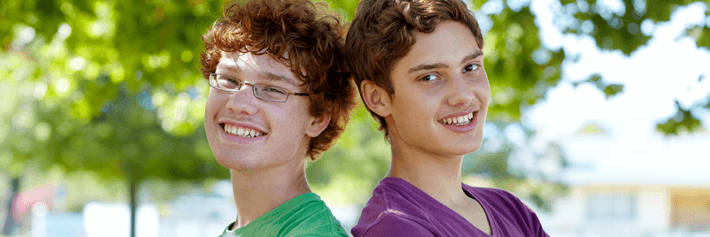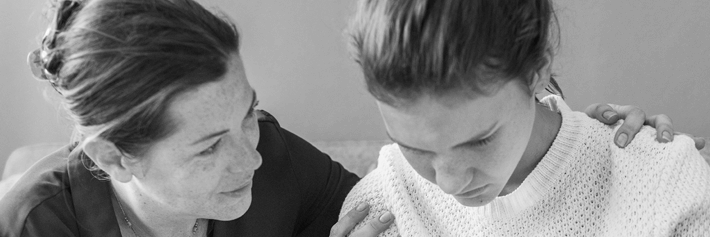Independent Social work assessments
- Home
- Independent Social work assessments
Sibling Attachment Assessments/
Together or Apart Assessments

The assessment of the sibling relationship is often referred to as a Sibling Attachment Assessment, Together or Apart Assessment or more recently, as a Beyond together or Apart Assessment. It is designed to consider the relationship between siblings who have often been separated and to determine if the nature of that relationship is one that should be preserved.
Permanent separation of siblings should never be considered lightly and is an area of assessment that often evokes strong emotions for Social Workers.
The assessment explores the individual child’s identified holistic needs before examining in depth, the relationship between siblings. Observations of the siblings together and detailed analysis of any difficulties in the relationship will determine the benefits of reparative work, using the CoramBAAF tool, Together or Apart? Assessing Siblings for Permanent Placement.
The guidance, ‘Beyond Together or Apart’ recognises that the introduction of the Public Law Outline means that there is an aim to reduce the time in which care proceedings are concluded to 26 weeks, requiring a fresh approach to these assessments.
Our Independent Social Workers can undertake such assessments from 4 weeks from receipt of the letter of instruction depending upon the number of children to be assessed.
Special Guardianship Assessment (SGO Assessment)

A Special Guardianship Assessment is an assessment completed of alternative family members by the local authority.
The SGO assessment is usually ordered to be completed during family care proceedings. A Special Guardianship Assessment is used by the Court to help make decisions about a child’s permanency.
What are the effects of a special guardianship order?
The effect of a special guardianship order is to:
- secure the child’s or young person’s long-term placement;
- grant parental responsibility to the special guardian;
- maintain links with the child’s or young person’s birth parent(s);
- enable the special guardian to have day-to-day control and to exercise their parental responsibility to the exclusion of all others with parental responsibility except another special guardian;
- Any existing care order on the child is automatically ended when the special guardianship order is made.
Our SGO assessors, will ensure that they gain a clear understanding of the child’s needs and also the prospective applicant, in order to reach a sound recommendation.
Our Independent Social Workers can undertake such assessments between 8-12 weeks from receipt of the letter of instruction depending upon the number of children to be assessed.
Viability Assessments

A viability assessment is a short, focused, adult-based assessment that considers the merits in further assessment work being undertaken.
These are now most commonly undertaken within the context of determining whether there should be full assessment of a connected carer but can be undertaken as a precursor to full parenting or contact risk assessments.
A viability assessment can prevent significant delay in the permanency planning for a child by negating the need for the fuller and lengthier assessment process. This might be achieved through either a recommendation for no further assessment or, alternatively, a recommendation for fuller but more focused assessment.
These assessments can be completed within a 4-week timescale.
Return Home Interviews

The purpose of the interview is to gather information about the child’s life with a holistic perspective to identify reasons for running or going missing. The interview is an opportunity for children to speak to an independent professional who can provide appropriate follow up with referrals or signposting.
These interviews aim to find out whether the returned young person has experienced crime or harm while away, if there are any ongoing risk or factors which may make them more likely to go missing again, and whether the person is now safe and well.
The purpose of the interview is to gather information about the child’s life with a holistic perspective to identify reasons for running or going missing. The interview is an opportunity for children to speak to an independent professional who can provide appropriate follow up with referrals or signposting.
Our independent Social workers are available to step in and conduct a Return Home Interview within the 72 hour recommended timescales.
Learning Difficulty/Additional Needs Parenting Assessments (ParentAssess)

A ParentAssess Assessment is a comprehensive, practical, evidenced-based assessment of parents or carers who learning or additional needs.
The assessment process is underpinned by the principles of accessibility, fairness and inclusivity and seeks to maximise opportunity for effective communication, parental engagement and early support. Further, the child is no longer secondary in the assessment process as the assessment incorporates voice of the child work exploring parenting from the perspective of the child.
The assessment is based upon the Department of Health assessment framework and goes beyond a parent’s ability to meet basic care needs, to incorporate an assessment of identified risk factors and explores amongst other things, the child’s experience of being parented, the parent’s daily living skills, how the parent functions, specific risk issues such as domestic or drug abuse and the availability and effectiveness of professional and family support networks.
The assessment uses a variety of pictorial means to meet the assessed parent’s learning and communication needs, such as the use of photos/cartoon images and short video recordings of parents interactions with their child. The voice of the child is established through the use of a ‘Feelings Chart’
The completion of a Strengths & Concerns assessment early into the full assessment process provides a corresponding early opportunity to identify parental support needs and the means by which these might be met. This creates a chance for the parents to access that support during the assessment process thereby allowing an opportunity to measure the parents ability to learn new skills, their capacity for change and, potentially reducing the need for re-assessment (post completion of support work) and consequent delay.
The full assessment report is accompanied by a version prepared specifically for the parent which is written and formatted in a way that makes this accessible to the parent.
We have a large number of Independent Social Worker’s on our panel who are trained to undertake ParentAssess Assessments. These types of assessments are generally completed in a timeframe of between 6 – 8 weeks.
Comprehensive Parenting and Risk Assessment

This is a standard Comprehensive Parenting and Risk assessment follows the Department of Health Framework for the Assessment of Children and Families. It examines identified risks, the family history, adverse childhood experiences, family & environmental factors, the child’s needs and the parent’s capacity to meet those needs. It analyses whether assessed risks can be mitigated, and the parent’s and/or child’s needs met through training or support.
These assessments consider whether a parent can safely care for a child but can also be undertaken to consider the possibility of contact, where a parent is unable to care but wants to have an ongoing relationship with their child.
Our ISW’s are able to undertake these standard Parenting and Risk Assessments from 4 weeks.
Risk Assessments
In addition to our Standard Parenting and Risk Assessments, we can also prepare a stand-alone Risk Assessment. These are often in circumstances where there are direct risks to a child, and we are asked to consider the viability or context of contact.
Child in Need Assessments

A child is ‘in need’ if:
- They are unlikely to achieve or maintain, or to have the opportunity of achieving or maintaining, a reasonable standard of health or development without the provision of services by a Local Authority under Part 3 of the Children Act 1989.
- Their physical or mental health and/or their physical, intellectual, emotional, social or behavioural development is likely to be significantly impaired, or further impaired, without the provision of such services.
- They are disabled.
- The child is homeless.
Assessments are conducted in accordance with the Framework for the Assessment of Children in Need and their Families, DOH 2000. The Framework has been developed to provide a systematic way of analysing, understanding and recording what is happening to children and young people within their families and the wider context of the community in which they live.
From such an understanding of what are inevitably complex issues and interrelationships, clear professional judgements can be made. These judgements include whether the child being assessed is in need, whether the child is suffering or likely to suffer significant harm, what actions must be taken, and which services would best meet the needs of this particular child and family.
Our independent Social Workers will provide an evidence-based professional judgement on whether the children are in need and create a robust SMART plan that addresses each area of need. This will involve, where necessary, the child, the parents or carers, wider family and other significant people and include a trajectory of work that will lead to an agreed end goal with reviews where necessary.
If the child is assessed to be at risk of significant harm, Axion Social care /or Local Authority Safeguarding Policy should be followed.
A safety plan would need to be identified and safety goals for the child as well as a plan of intervention should be completed.
If the child is assessed as not requiring a service, then a family plan will be agreed that identifies the roles and responsibilities for that child to address the referral concerns and any other work identified.
Private law proceedings reports (s7/s37)

Our private law assessment services include:
- Section 7 welfare reports;
- Section 37 reports
Section 7 reports are ordinarily prepared by CAFCASS or the relevant Local Authority when the court requires professional social work assistance in determining a matter concerning the subject child’s welfare (when disputed between the child’s parents/carers/other connected persons). Our Independent Social Workers have experience of advising the court upon many different welfare issues including:-
- Child arrangement orders – who a child lives or spends time with… particularly in the context of allegations of domestic abuse and parental alienation
- Prohibited steps orders
- Specific issue orders
- Domestic & international relocation – including wishes & feelings work
Our assessment services within private law matters are complemented by a range of support services which aim to resolve or reduce identified risks and create an environment in which the family can move forward. Such services include:
- contact supervision;
- life story work;
- mediation & relationship repair work;
- education upon issues such as domestic abuse, parental alienation and parenting skills
We offer timeframes for the completion of welfare assessments to meet case specific requirements – completion times start from 4 weeks from receipt of the letter of instruction.
Our Services
- Sibling Attachment Assessments/Together or Apart Assessments
- Special Guardianship Assessment (SGO Assessment)
- Viability Assessments
- Return Home Interviews
- Learning Difficulty/Additional Needs Parenting Assessments
-
Comprehensive Parenting
and Risk Assessment - Child in Need Assessments
- Private law proceedings reports (s7/s37)
Get in touch
- 07384353310
- admin@axionsocialcareservices.com
